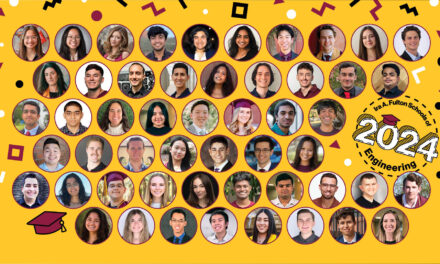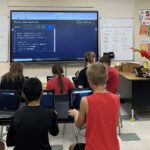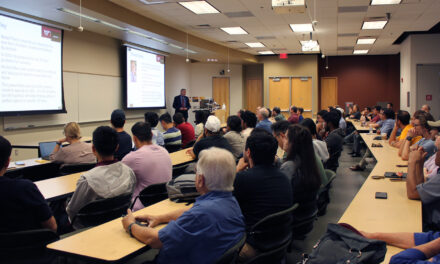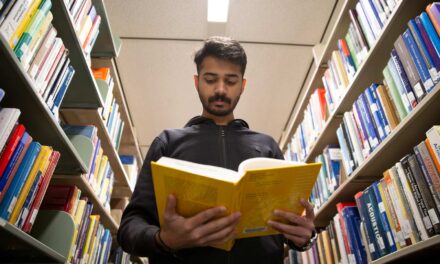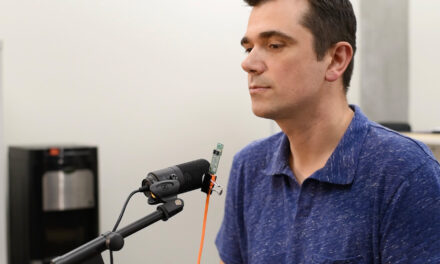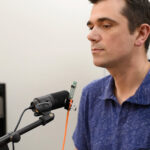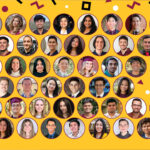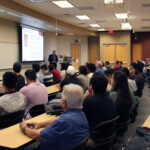
Panchanathan receives national innovation, entrepeneurship appointment
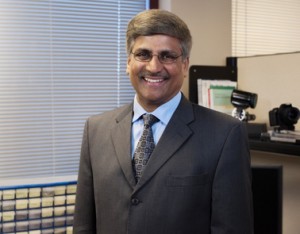
Sethuraman “Panch” Panchanathan, senior vice president for Knowledge Enterprise Development at Arizona State University, and professor in the School of Computing, Informatics, and Decision Systems Engineering, one of ASU’s Ira A. Fulton Schools of Engineeri
U.S. Secretary of Commerce Penny Pritzker has announced that Sethuraman “Panch” Panchanathan is one of the 27 individuals who have been selected to serve on the National Advisory Council on Innovation and Entrepreneurship (NACIE).
Panchanathan is the senior vice president for Knowledge Enterprise Development at Arizona State University. He is also a professor in the School of Computing, Informatics, and Decision Systems Engineering in the Ira A. Fulton Schools of Engineering.
The council will operate as an independent entity within the Office of Innovation and Entrepreneurship, which is housed within the U.S. Commerce Department’s Economic Development Administration. Council members will advise the Secretary of Commerce on issues related to accelerating innovation, expanding entrepreneurship and developing a globally competitive workforce.
“Through our ‘Open for Business Agenda,’ the Commerce Department has prioritized supporting entrepreneurs and helping foster innovation, which are key drivers of America’s global competitiveness,” Pritzker said. “The new NACIE members are a diverse and dynamic group of successful entrepreneurs, innovators and investors, as well as leaders from nonprofit organizations and academia. I appreciate their willingness to serve our nation on these important issues, and I look forward to working with the Council to advance innovation and cultivate a skilled workforce for today’s 21st century jobs.”
Among his other responsibilities, Panchanathan is a foundation chair in Computing and Informatics and director of the Center on Cognitive Ubiquitous Computing (CUbiC). He was the founding director of the School of Computing and Informatics and instrumental in founding the Biomedical Informatics Department at ASU. He was also the chair of the Computer Science and Engineering Department and the operational leader for the Biomedicine@ASU Initiative in the Office of the Provost.
His research interests are in the areas of human-centered multimedia computing, designing ubiquitous computing environments for enhancing quality of life for individuals with disabilities, health informatics, human-centered multimedia computing and haptic (touch-based) user interfaces. He has published more than 400 papers, and has mentored more than 100 graduate students, post-docs, research engineers and research scientists who occupy leading positions in academia and industry.
“I am grateful to the secretary for involving me in NACIE, and delighted to serve in this important national council, which closely aligns with my interests and passion. The 21st century innovation-based economy increasingly requires a highly talented and innovative workforce who are entrepreneurial thinkers and problem solvers in order to position our country at the vanguard of global competitiveness. ASU is becoming a national model on many fronts, and I am looking forward to contributing our innovative ideas and approaches while at the same time learning from my NACIE colleagues about best practices that can be rapidly scaled,” says Panchanathan.
The council’s overarching focus is recommending transformational policies to the U.S. Secretary of Commerce that will help U.S. communities, businesses and the workforce become more globally competitive. Council members, who will serve a two-year term, were chosen based on their ability to carry out the objectives of the council. All of the appointees have demonstrated expertise and experience in the areas of innovation, entrepreneurship and workforce skills. In reviewing the applications, the secretary sought individuals who have been nationally recognized leaders in a variety of fields in order to create a balanced point of view, including a representation of different demographics, organization size, industry sector and geographic regions.
The council’s work will be organized into subcommittees around three main focus areas: entrepreneurship, innovation and job-driven skills training. The full council will convene four times each year, beginning with the first meeting in December 2014.






